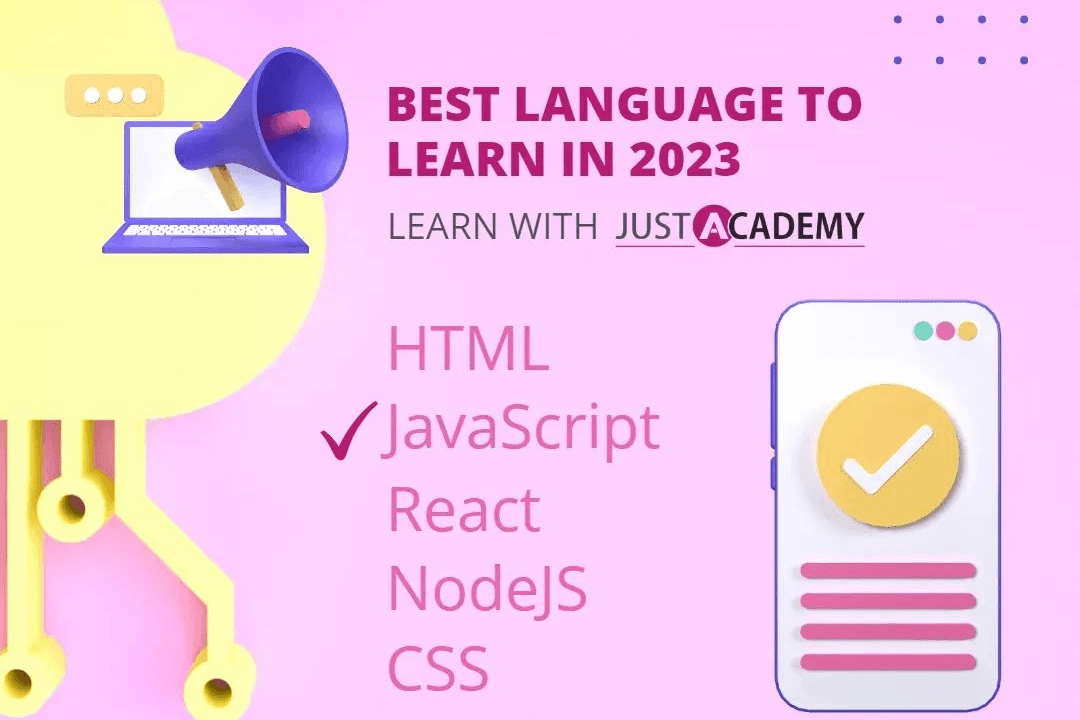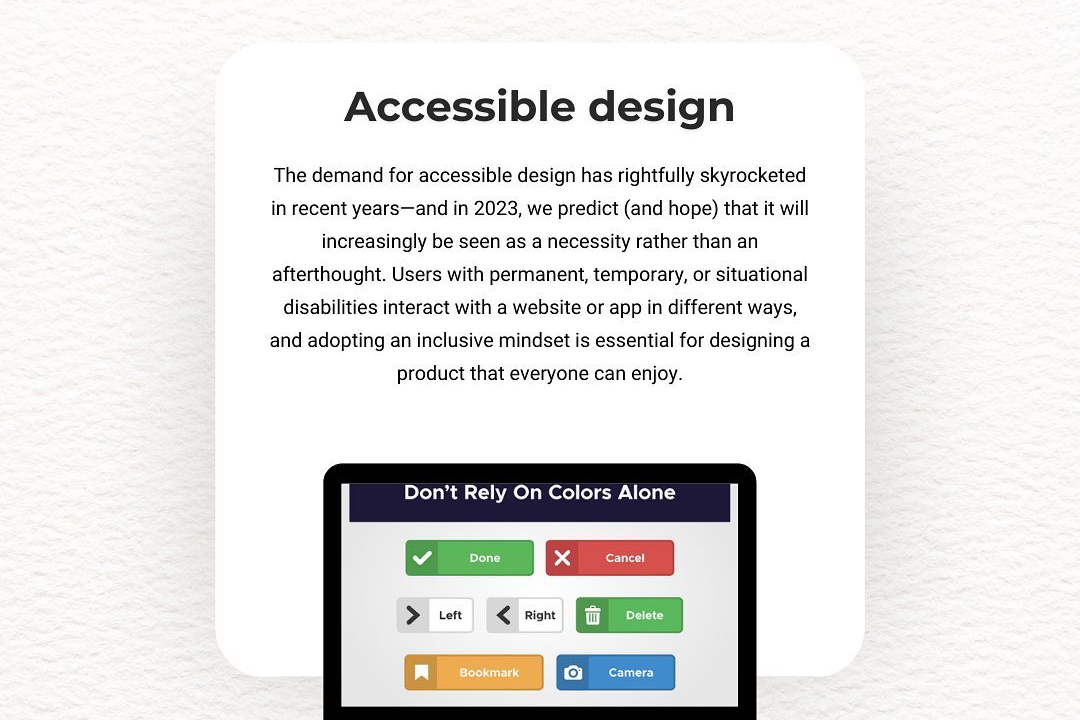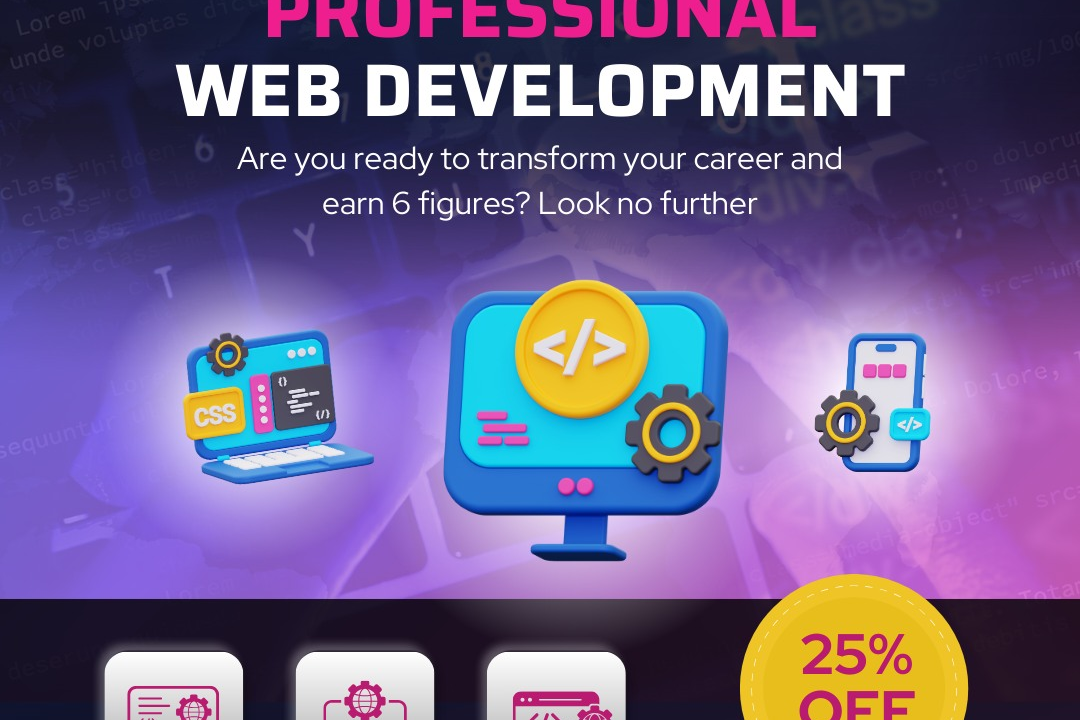Functional Programming Vs Object Oriented Programming Php
Functional programming in PHP emphasizes writing stateless, pure functions that focus on data transf
Functional Programming Vs Object Oriented Programming Php
Functional programming and object-oriented programming in PHP each offer valuable approaches to software development, enhancing code quality and maintainability. Functional programming emphasizes writing pure, stateless functions that process data without side effects, leading to clearer, more predictable code that is easier to test and debug. On the other hand, object-oriented programming organizes code into objects, promoting modularity, reusability, and abstraction, which are especially useful for building complex, scalable applications. Combining these paradigms enables developers to create flexible, efficient, and robust PHP applications tailored to diverse project needs.
To Download Our Brochure: https://www.justacademy.co/download-brochure-for-free
Message us for more information: +91 9987184296
Functional programming and object oriented programming in PHP each offer valuable approaches to software development, enhancing code quality and maintainability. Functional programming emphasizes writing pure, stateless functions that process data without side effects, leading to clearer, more predictable code that is easier to test and debug. On the other hand, object oriented programming organizes code into objects, promoting modularity, reusability, and abstraction, which are especially useful for building complex, scalable applications. Combining these paradigms enables developers to create flexible, efficient, and robust PHP applications tailored to diverse project needs.
Course Overview
This course compares functional programming and object-oriented programming in PHP, highlighting their concepts, advantages, and best use cases. Participants will learn how to write clean, efficient code using both paradigms, understand their differences, and apply them effectively in real-world projects.
Course Description
This course explores the differences between functional programming and object-oriented programming in PHP, covering their core concepts, advantages, and best practices. Through practical examples, learners will understand how to implement both paradigms to write efficient, maintainable, and scalable PHP applications.
Key Features
1 - Comprehensive Tool Coverage: Provides hands-on training with a range of industry-standard testing tools, including Selenium, JIRA, LoadRunner, and TestRail.
2) Practical Exercises: Features real-world exercises and case studies to apply tools in various testing scenarios.
3) Interactive Learning: Includes interactive sessions with industry experts for personalized feedback and guidance.
4) Detailed Tutorials: Offers extensive tutorials and documentation on tool functionalities and best practices.
5) Advanced Techniques: Covers both fundamental and advanced techniques for using testing tools effectively.
6) Data Visualization: Integrates tools for visualizing test metrics and results, enhancing data interpretation and decision-making.
7) Tool Integration: Teaches how to integrate testing tools into the software development lifecycle for streamlined workflows.
8) Project-Based Learning: Focuses on project-based learning to build practical skills and create a portfolio of completed tasks.
9) Career Support: Provides resources and support for applying learned skills to real-world job scenarios, including resume building and interview preparation.
10) Up-to-Date Content: Ensures that course materials reflect the latest industry standards and tool updates.
Benefits of taking our course
Functional Tools
1 - PHPStorm IDE
PHPStorm is a powerful Integrated Development Environment tailored for PHP development. It provides advanced code editing features, intelligent code completion, and real time error detection, which help students write clean and efficient code in both functional and object oriented paradigms. Its debugging tools facilitate quick identification and fixing of bugs, while integrated version control support allows seamless project management. The user friendly interface and extensive plugin ecosystem make PHPStorm ideal for training students to understand complex codebases, collaborate effectively, and adhere to best coding practices across paradigms.
2) Xdebug
Xdebug is a popular debugger and profiler tool for PHP, essential for understanding code execution flow and performance optimization. It enables students to set breakpoints, step through code line by line, and inspect variable states, which deepens comprehension of how functional and object oriented code operate internally. The profiling features help identify bottlenecks, encouraging students to write optimized code. Xdebug's integration with IDEs like PHPStorm makes it an indispensable tool for practical debugging exercises, enhancing troubleshooting skills in real world scenarios.
3) Composer
Composer is the dependency management tool for PHP, automating the installation and updating of libraries and packages. It allows students to easily incorporate external libraries that exemplify various programming techniques, whether functional utilities or object oriented frameworks. Using Composer, students learn to manage project dependencies systematically, fostering good software engineering practices. It also aids in setting up project environments swiftly, ensuring consistency across development setups and encouraging modular, maintainable code development.
4) PHPUnit
PHPUnit is the standard testing framework for PHP, crucial for practicing Test Driven Development (TDD) and ensuring code reliability. It allows students to write unit tests for both functional and object oriented code, promoting disciplined testing habits. Through PHPUnit, students learn to validate their code against expected outcomes, catch bugs early, and improve code quality. The framework's features help in designing tests that reflect real world application behavior, building confidence in deploying robust and bug free software.
5) Version Control Systems (Git)
Git is an essential tool for tracking changes, managing code versions, and collaborating on projects. It teaches students disciplined coding workflows, enabling them to experiment with different approaches—functional or object oriented—without losing previous work. Through Git, students understand branching, merging, and resolving conflicts, which are vital skills in team environments. Its integration with platforms like GitHub or GitLab further encourages collaborative learning and peer reviews, instilling professional development habits.
6) Static Code Analysis Tools (PHP_CodeSniffer, PHPMD)
Static analysis tools such as PHP_CodeSniffer and PHPMD help students maintain clean, consistent, and high quality code by detecting violations of coding standards and identifying potential defects. They automate code reviews, enforce best practices, and highlight issues related to both paradigms, fostering better coding discipline. These tools provide immediate feedback, allowing students to rectify problems early in the development process, which cultivates attention to detail and code quality consciousness.
7) Frameworks and Libraries (Laravel, Symfony, Guzzle)
Frameworks like Laravel and Symfony serve as practical examples of object oriented PHP application architecture, while libraries like Guzzle demonstrate functional programming techniques through HTTP client implementations. These tools give students hands on experience in building scalable and maintainable applications, understanding the application of different programming paradigms in real projects. Learning to integrate and utilize these frameworks helps students grasp complex concepts such as MVC architecture, dependency injection, and modular design, bridging theoretical knowledge with practical skills.
8) Profiling and Performance Monitoring Tools (Blackfire, New Relic)
Profiling tools like Blackfire and New Relic enable students to analyze application performance, identify slow functions, and optimize code by monitoring runtime behavior. They are essential for understanding the efficiency implications of functional versus object oriented implementations. By leveraging these tools, students gain insights into resource consumption, database queries, and execution bottlenecks, fostering an optimization mindset. Such performance monitoring encourages writing efficient, scalable code tailored to application needs.
9) Code Documentation Tools (PHPDoc)
PHPDoc assists students in writing comprehensive documentation for their code, making it easier to understand and maintain. Proper documentation is critical when working with complex functional and object oriented codebases, as it enhances collaboration and code readability. PHPDoc annotations explain class structures, functions, parameters, and return types, which serve as valuable references during development and debugging. Encouraging disciplined documentation habits prepares students for professional software engineering environments.
10) Containerization Tools (Docker)
Docker enables students to create consistent development environments, simplifying setup for courses involving multiple paradigms. It helps encapsulate dependencies, ensuring that code runs uniformly across various systems, which is crucial for collaborative projects. By using Docker, students learn about containerized deployment, environment isolation, and reproducibility, essential skills for modern cloud and microservices architectures. This tool fosters best practices in environment management, reducing configuration errors.
11 - Code Editors and Syntax Highlighting (Visual Studio Code, Sublime Text)
Lightweight code editors like Visual Studio Code and Sublime Text support syntax highlighting, code completion, and extension integrations tailored for PHP development. They provide an accessible platform for experimenting with both paradigms, offering features such as multi caret editing and integrated terminals. Students can customize workflows using plugins for debugging, version control, and static analysis, which accelerates learning and productivity in coding complex projects.
12) Learning Management System (LMS) Platforms
Platforms like Moodle or Canvas facilitate course delivery, assignment submission, and progress tracking. They support multimedia tutorials, quizzes, and coding exercises, enabling students to engage actively with the course content. Integrated discussion forums promote peer learning and instructor guidance, while analytics help monitor student engagement. These systems streamline the training process, ensuring comprehensive and interactive learning experiences for mastering PHP paradigms.
13) API Testing Tools (Postman)
Postman is a vital tool for testing RESTful APIs and understanding client server interactions within PHP applications. It allows students to craft requests, analyze responses, and automate testing procedures, reinforcing the integration of different system components. Working with APIs in both paradigms develops skills in designing flexible, interoperable services and enhances understanding of asynchronous and stateless communication models.
14) Continuous Integration Services (Travis CI, Jenkins)
CI tools automate the process of testing and deploying code changes, ensuring that functional and object oriented PHP projects maintain high quality throughout development. They run automated tests, perform static analysis, and deploy applications after each commit, fostering a culture of continuous improvement. These tools help students understand modern DevOps practices, integrate code smoothly, and reduce manual errors, preparing them for professional software delivery pipelines.
15) Code Quality and Security Tools (SonarQube, PHP Security Scanner)
These tools analyze PHP code for vulnerabilities, security flaws, and code smells, helping students develop secure and robust applications. SonarQube provides comprehensive insights into code quality metrics, while PHP Security Scanner detects common security issues like SQL injection, XSS, and insecure data handling. Incorporating these tools into training promotes a security first mindset and reinforces best practices in both functional and object oriented programming.
16) Database Management and ORMs (phpMyAdmin, Doctrine, Eloquent)
Tools like phpMyAdmin facilitate database management, while ORMs such as Doctrine and Eloquent demonstrate object relational mapping techniques. Students learn to design database schemas, perform CRUD operations, and implement relationships using both raw SQL and ORM methods. Mastering these tools helps them understand data modeling, improve data manipulation efficiency, and apply paradigms in data driven PHP applications.
17) Code Refactoring and Design Pattern Tools
Refactoring tools and design pattern libraries assist students in improving code structure, readability, and maintainability. Visual aids and pattern repositories help identify opportunities for applying Singleton, Factory, Observer, and other design patterns, especially pertinent in object oriented programming. These skills foster scalable, adaptable codebases and deepen understanding of best practices in software architecture.
18) Real Time Collaboration Platforms (GitHub, GitLab, Bitbucket)
Cloud based repositories support collaborative coding, code reviews, and version control amidst team projects. These platforms promote peer learning through pull requests, inline comments, and issue tracking. They prepare students for professional development workflows, emphasizing collaborative coding and effective communication in both paradigms.
19) Automated Deployment Tools (Capistrano, Jenkins Pipelines)
These tools streamline deploying PHP applications to staging and production environments, integrating tests and infrastructure setup into automated pipelines. Students learn to manage release cycles efficiently, deploy updates safely, and minimize downtime. This experience is critical for understanding DevOps processes applicable to functional and object oriented projects.
20) Cross Platform Testing Frameworks (Selenium, Behat)
Tools like Selenium enable automated UI testing across browsers, while Behat facilitates behavior driven development (BDD). These frameworks help students ensure their application functions correctly in different environments, emphasizing the importance of comprehensive testing strategies across paradigms and increasing confidence in deploying user facing features.
21 - Cloud Services Integration (AWS, Azure, Google Cloud)
Introducing students to deploying and hosting PHP applications on cloud platforms exposes them to scalable and resilient infrastructure management. They learn to configure services such as storage, databases, and serverless functions, enhancing their ability to build real world applications that utilize cloud native features within functional or object oriented architectures.
22) Messaging Queues and Asynchronous Processing (RabbitMQ, Redis)
Learning to incorporate message brokers introduces asynchronous processing capabilities, improving application performance and scalability. Students understand decoupling components, managing background jobs, and implementing event driven systems using queues and pub/sub mechanisms, applicable in both paradigms for building responsive applications.
23) Code Snippet Management and Repositories (Gist, SnippetsLab)
Using platforms to organize reusable code snippets encourages best practices in code reuse and standardization. Students discover how to share and document common functions, utilities, or patterns, streamlining development workflows across various projects and paradigms.
24) Interactive Coding Platforms (CodePen, JSFiddle adapted for PHP)
These environments allow students to experiment with PHP snippets instantly, fostering quick learning and testing of new concepts in both functional and object oriented code. They offer immediate feedback and easy sharing, enhancing engagement with coding exercises.
25) Mobile App Development Frameworks (React Native, Flutter with PHP Backend)
While PHP primarily handles backend logic, integrating with mobile frameworks prepares students for full stack development. They learn to develop APIs and connect applications across platforms, understanding how PHP based APIs serve different frontend paradigms, broadening their development skill set.
26) Microservices Architectures and API Gateways
Training on designing microservices with PHP, complemented by API gateway platforms, teaches students to build modular, scalable systems. This experience emphasizes the application of both paradigms in distributed environments, making use of container orchestration tools like Kubernetes for deployment.
27) User Experience Design Tools (Figma, Adobe XD)
While indirectly related, these design tools enable students to plan intuitive interfaces for PHP applications. Understanding front end considerations improves backend development, especially when building feature rich platforms in object oriented or functional styles tied to user experience.
28) Data Serialization and Caching Tools (JSON, XML, Redis, Memcached)
Learning to serialize data efficiently and cache results enhances application speed and scalability. Students explore how different paradigms impact data handling and performance optimization, equipping them with strategies for high performance PHP applications.
29) Learning Pathways with Certifications and Badging
Structured learning programs and digital badges motivate mastery of PHP paradigms and related tools, providing recognition of skill development. This fosters professional growth and helps in building a portfolio that showcases practical expertise in various PHP frameworks, tools, and best practices.
30) Virtual Labs and Sandbox Environments
Simulated environments allow students to practice deploying, debugging, and managing PHP projects without affecting live systems. These labs support hands on learning with different tools, paradigms, and deployment strategies, boosting confidence and technical competence.
31 - Analytics and User Behavior Tracking (Google Analytics, Matomo)
Students learn to incorporate analytics into their PHP applications to gather user insights. This data driven approach helps optimize application features and performance, regardless of the programming paradigm, aligning development with business needs.
Browse our course links : https://www.justacademy.co/all-courses
To Join our FREE DEMO Session:
This information is sourced from JustAcademy
Contact Info:
Roshan Chaturvedi
Message us on Whatsapp: +91 9987184296
Email id: info@justacademy.co












